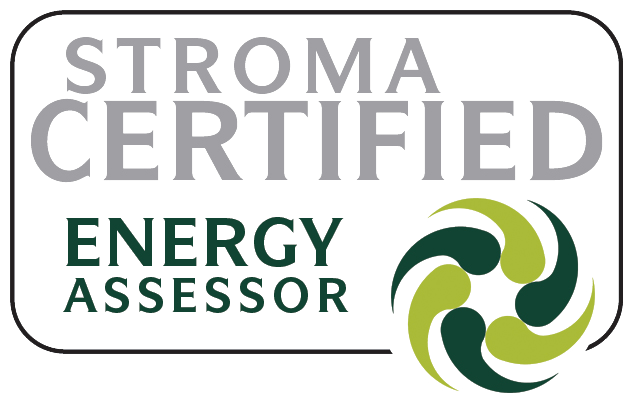Commercial Energy Performance Certificates
Commercial EPC
An EPC is a legal requirement – and it’s one that’s becoming even more important. As of April 2023, all leased commercial buildings require an EPC to ensure compliance with UK law (read more on commercial minimum energy efficiency standards).
We offer in-depth, bespoke energy information about your property that offers both short-term and long-term options and opportunities for your premises. We’ve partnered with property managers and owners all over the UK to ensure they’re compliant, secure and making the most of their investments.
How to get a commercial energy performance certificate
1
One of our team comes to your site and carries out a thorough survey. This allows us to capture information about the building. This has been optimised for minimal disruption.
2
We will build a 3D dynamic energy model of your building allowing us to produce the EPC, but also interrogate the property and provide bespoke, actionable options to improve efficiency, get a high EPC rating and mitigate risk as EPC regulation tightens.
3
For future reference, we have the advantage of a model we are able to revisit as building upgrades are carried out. That allows us to create options for upgrades and refurbishments as legislation continues to get tighter.
Making it work for you
We know it can get complicated, especially if you need to review an extensive property portfolio. We are here to help you unravel the new legislation and specifically what it means for you. Our experts are here to make sense of it all and our qualified CIBSE Energy Assessors offer years of experience that will make the process as smooth as possible so you can rent your property without any delay.
Commercial EPC Plus Report
We can also offer you more than just the basic requirements of your EPC. If your building has a poor EPC rating, we can always help you to move to the next level. We provide a report with recommendations on further energy efficiency improvements you can make, helping you to make informed decisions about your property.
Why use Energy Report for your Commercial EPCs
- We offer not just EPCs that are accurate, affordable and ensure compliance, but long-term support and advice that will help you make the most of your premises. We assist with the EPC energy efficiency regulations and help plan for the future with our EPC Improvement Report (EIR).
- We turn an EPC into a blueprint that will offer you countless opportunities to improve premises, as well as discover and offer solutions for any current issues.
- EIRs provide a breakdown of EPC rating points so you can focus on where best to make your improvements.
- Importantly, achieving higher levels of energy efficiency compliance ensures you’re staying proactive. In today’s world of concern over CO2 production, energy efficiency is more important than ever.
It’s our job to keep your premises compliant and occupied. Staying ahead of regulations is key – for April 2023 and beyond.
As a CIBSE low carbon consultancy with over 15 years of experience, let us assist you with preparations and help you stay compliant.
Frequently Asked Questions
Is an EPC required for commercial properties?
Currently (Dec 2022), EPCs are only required for commercial buildings at the point of marketing for sale or lease and or at the point of sale/lease.
In order for a commercial budling to be let, it must meet a minimum E rating as set out in the Minimum Energy Efficiency Standards for Private Rented sector. Further to this, some banks and other financial institutions require a valid EPC to be in place for a building having finance raised against it.
From April 2023, a new requirement is being introduced for the non-domestic PRS. As of 1st April 2023 all let buildings, whether a new lease is being singed or not, must have a valid EPC in place of an E rating or better.
How much does a commercial EPC cost?
Costs vary for commercial EPCs, as do commercial buildings themselves. An indication of costs is in the order of a few hundred pounds, this is very much dependent on size and type of building.
Fees start from approx. £200 plus VAT for a small single building. Larger buildings and portfolios of properties are considered on a case-by-case basis, and we offer fees following discussions with the clients and assessing their requirements.
We offer an initial assessment of a building or portfolio – we will then provide the client knowledge of how their buildings rate and offer help to improve the EPC rating, taking into account future tightening of regulations, thus allowing our clients foresight and assurances that the properties will be compliant and allowing them to be legally let.
What is the fine for not having an EPC?
The vendor has 21 days for the carrying out of the necessary inspections by the commissioned contractor and the provision of the EPC itself, but if these provisions are breached, the vendor can be fined between £500 and £5,000 based on the rateable value of the building.
How do I get my commercial EPC certificate?
Instructing a commercial EPC couldn’t be simpler, simply email the building address to info@energyreport.co.uk. We will then carry out simple checks to find out the size and type of building, then we will send our fee quote by return email.
Is it a legal requirement to have an EPC?
In most cases, yes, an EPC is required to be valid for a new or extension to a lease or for the sale of a commercial building.
EPCs are not required for owner-occupiers where a lease is not in place. Further to this, there is a minimum EPC rating that let non-domestic budlings are required to meet. The Energy Efficiency (Private Rented Property) (England and Wales) Regulations 2015 establish a minimum level of energy efficiency for privately rented property in England and Wales, from 1st April 2018, landlords of privately rented property in England or Wales must ensure that their properties reach at least an Energy Performance Certificate (EPC) rating of E before granting a new tenancy to new or existing tenants.
This requirement is due to be extended to all let non-domestic buildings on 1st April 2023. Further to this, the longer-term requirements have been announced to raise the minimum rating from E to C by April 2027 and then to B by 2030.
How long is a commercial EPC valid for?
Non-domestic EPCs are valid for a period of 10 years from issue, due to changes in the EPC rating system in June 2022, many older EPC rating may have changed. Research carried out by Elmhurst Energy, one of the largest EPC accreditation schemes, identified that there is potential for EPC rating for commercial buildings to either jump or be cut by recent changes to the energy modelling software criteria used to produce EPCs. A link to the article can be found here.
Can you sell a commercial property without an EPC?
You must have an EPC if you sell the premises The EPC should be organised before the property is marketed, as the regulations provide that the EPC must be commissioned prior to, or within seven days of the property being put on the market.
EPC Improvement Report
How do we do it?
We offer in-depth, bespoke energy information about your property that offers both short-term, and long-term options and opportunities for your premises.
Why should you talk to us?
- We turn an EPC into a blueprint that will offer you countless opportunities to improve premises, as well as discover and offer solutions for any current issues.
- Compliant EPCs are a legal requirement – it is becoming even more important for government targets, property investors and tenants to have efficient buildings. By partnering with us, you can ensure you don’t have to worry about compliance for a second. We take care of it all.
- An Energy Report EPC improvement Report (EIR) offers a detailed breakdown of improvements that are applicable to the building in question, this goes above and beyond the EPC recommendation report, by highlighting specific improvements, coupled to the area of the building and the consequential improvements to the building EPC rating. Often our EIR can be referred to when considering medium to long term building improvements.
- Importantly, achieving higher levels of energy efficiency compliance ensures you’re staying proactive. In today’s world of concern over CO2 production, energy efficiency is more important than ever.








 We use Energy Report as our main Energy Performance Certificate provider. They are always very quick to act on an instructions and provide a very competitive quote. The report is turned around very swiftly and they are helpful and polite when answering queries. We have no hesitation at all in recommending Energy Report to any of our clients as they always provide excellent service.
We use Energy Report as our main Energy Performance Certificate provider. They are always very quick to act on an instructions and provide a very competitive quote. The report is turned around very swiftly and they are helpful and polite when answering queries. We have no hesitation at all in recommending Energy Report to any of our clients as they always provide excellent service.